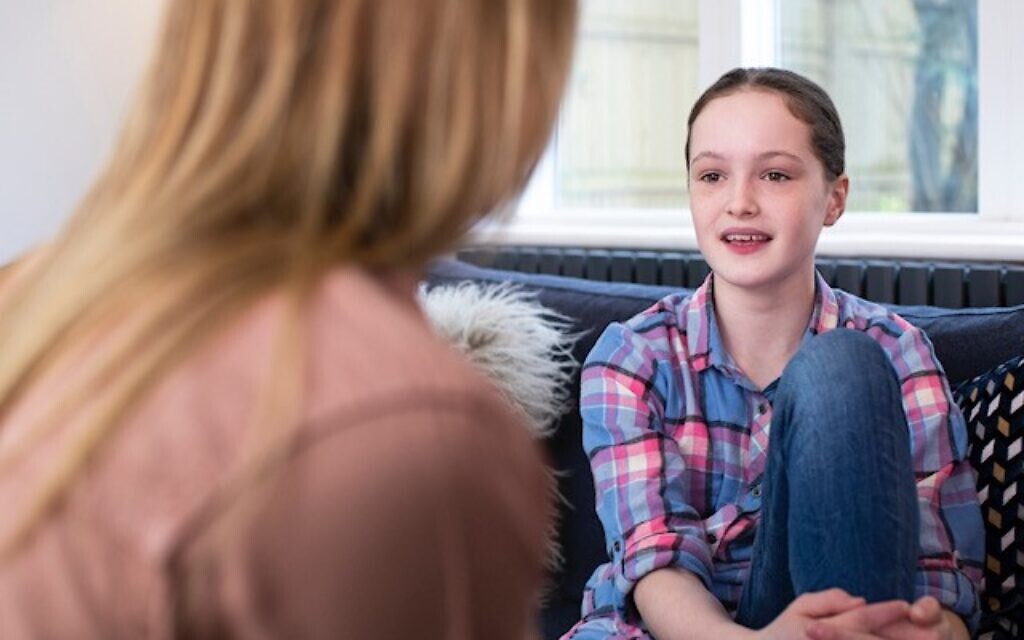Making Sense of the Sedra: Education is a Mitzvah
In our thought-provoking series, rabbis, rebbetzins and educators relate the week’s parsha to the way we live today
The Yizkor prayer uttered at the end of each foot festival in Ashkenazi synagogues prays that God vouchsafe unto us the joy of training our sons and daughters to follow in the ways our parents taught us in generations previous to our own. This is the fundamental premise to the opening section of Emor, this week’s reading.
The rabbinic reading: “Tell the priests, sons of Aaron,” is that the scripture is holding the priesthood to a commitment to train their children from a young age to take care with the disciplines of life specific to them. This maps over somewhat to all Israelites, paralleling the rabbinic enjoining of all Jews to place a high priority on initiating our children, through education, into the customs and practices of our predecessors and ancestors. This is known as the mitzvah of chinuch (education), which extends training in the practice of the commandments to all, beyond the specific practices of teaching and discussing with one’s children the content of the Torah.
At this time of year, during the Omer, between Pesach and Shavuot, we commemorate various dates relating to the existential realities of our people. On Yom HaShoah we commemorate how as a nation we survived the Holocaust. On Yom Haatzmaut, we celebrate that we set up a Jewish state only three years after that terrible inferno; on Yom HaZikaron preceding it, we commemorate how our soldiers fell for Israel’s freedom. On Lag Ba’Omer we recall the collapse of efforts to win back a Jewish state in 135 CE and the temporary relief, after the war with the Romans concluded, to clear away and bury the dead of Bar Cochba’s forces in Betar, an event eternalised in the fourth blessing of the grace after meals.
Get The Jewish News Daily Edition by email and never miss our top stories Free Sign Up
A particularly sad element of Emor appears at the end, featuring the son of an Israelite woman of the tribe of Dan who blasphemed God and was put to death. The modern reader might shudder at the thought of putting someone to death for saying rude things to God. Was the son fatherless and bullied? Was he a troubled teenager? Or was he just angry at the system? It may be any, all or none of these. Whatever his personal issues, to blaspheme God was just too violent a crime for society to suffer. In the socially fragile, post-slavery reconstruction of a broken nation, disrespecting the God whose valiant salvation had just plucked them from the jaws of death and misery was a high crime, and an intolerable one. This sad occurrence, and the later example made of the rebellious son might relate to one theme, which is how children are nurtured from the earliest years. Responsible parents would wish that their child reflect, through their good conduct through life, the best teaching and guidance that their parents were able to afford. It is therefore imperative that the social and moral development of a child is well-led and guided, so as to lessen, if to not eliminate, the risk of delinquency and criminality.

Thank you for helping to make Jewish News the leading source of news and opinion for the UK Jewish community. Today we're asking for your invaluable help to continue putting our community first in everything we do.
For as little as £5 a month you can help sustain the vital work we do in celebrating and standing up for Jewish life in Britain.
Jewish News holds our community together and keeps us connected. Like a synagogue, it’s where people turn to feel part of something bigger. It also proudly shows the rest of Britain the vibrancy and rich culture of modern Jewish life.
You can make a quick and easy one-off or monthly contribution of £5, £10, £20 or any other sum you’re comfortable with.
100% of your donation will help us continue celebrating our community, in all its dynamic diversity...
Engaging
Being a community platform means so much more than producing a newspaper and website. One of our proudest roles is media partnering with our invaluable charities to amplify the outstanding work they do to help us all.
Celebrating
There’s no shortage of oys in the world but Jewish News takes every opportunity to celebrate the joys too, through projects like Night of Heroes, 40 Under 40 and other compelling countdowns that make the community kvell with pride.
Pioneering
In the first collaboration between media outlets from different faiths, Jewish News worked with British Muslim TV and Church Times to produce a list of young activists leading the way on interfaith understanding.
Campaigning
Royal Mail issued a stamp honouring Holocaust hero Sir Nicholas Winton after a Jewish News campaign attracted more than 100,000 backers. Jewish Newsalso produces special editions of the paper highlighting pressing issues including mental health and Holocaust remembrance.
Easy access
In an age when news is readily accessible, Jewish News provides high-quality content free online and offline, removing any financial barriers to connecting people.
Voice of our community to wider society
The Jewish News team regularly appears on TV, radio and on the pages of the national press to comment on stories about the Jewish community. Easy access to the paper on the streets of London also means Jewish News provides an invaluable window into the community for the country at large.
We hope you agree all this is worth preserving.
-
By Brigit Grant
-
By Laurent Vaughan - Senior Associate (Bishop & Sewell Solicitors)
-
By Laurent Vaughan - Senior Associate (Bishop & Sewell Solicitors)
-
By Laurent Vaughan - Senior Associate (Bishop & Sewell Solicitors)
-
By Laurent Vaughan - Senior Associate (Bishop & Sewell Solicitors)






















